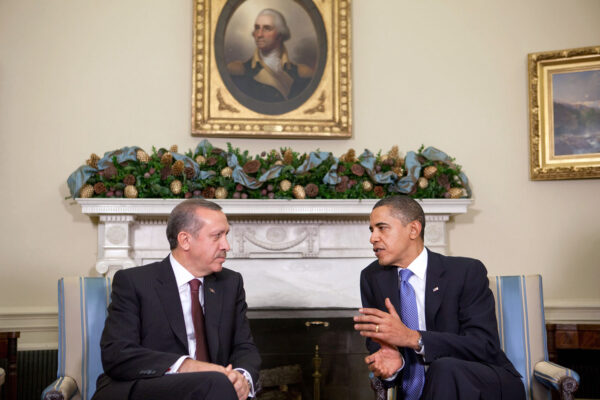
David Graeber argues in The Guardian newspaper that all that’s standing in the way of defeating the Islamic State is Turkish president Recep Tayyip Erdoğan who is distracting Kurdish militants from fighting the fanatical Islamist organization.
If only it were that simple.
First, Graeber sidesteps the fact that the Kurdistan Workers’ Party (PKK) itself resumed conflict with the Turkish state. It is still considered a terrorist organization by Turkey and its NATO allies, barring the West from supporting it no matter how effective it may be against the self-declared caliphate in Iraq and Syria.
There is little doubt that Erdoğan has seized on the PKK’s resurgence for political reasons. It helped him persuade Turks in an election earlier this month to give his Justice and Development Party another majority.
But it would be a stretch to claim, as Graeber does, that the Kurds have “completely shifted strategy, renouncing separatism and adopting a strict policy of never harming civilians.” Neither Erdoğan nor the PKK is free from blame here.
Second, it may be overly optimistic to think that the Kurds can defeat the Islamic State on their own. Their priority is defending their territory. They should hesitate before moving into the Sunni-inhabited areas of Iraq and Syria once the Islamists have been driven out of Kurdistan.
Turkey has interests of its own
That said, Graeber does have a point — and it’s one this website has made as well: Turkey is not exactly helping when it comes to defeating the Islamic State. It is more interested in suppressing Kurdish nationalism and considers toppling Syrian dictator Bashar al-Assad more important.
There is something to be said for both.
Kurdish militancy does threaten the Turkish state as it is. The Kurds may deserve their independence, but it would come at the expense of a big chunk of Turkey’s territory.
As for Assad, he was the one who “left space” for a group like the Islamic State, as Erdoğan put it last year. “He was the one who prepared the ground for this.”
Assad, an Alawite, deliberately radicalized the largely Sunni opposition against his regime, hoping that the rest of the world would ultimately see him as the lesser evil.
The Islamic State’s brutality is giving Assad what he wanted all along: credibility. Russia — far from immune to Muslim extremism — backs him wholeheartedly and there are politicians in Europe as well as the United States making the same argument Vladimir Putin does: that Assad is a bulwark against religious fanaticism.
Turkey is losing the argument, but it’s not giving up. “Daesh,” said Erdoğan this week — using a loose Arabic acronym to refer to the Islamic State — “is supported by Assad. Assad, at the moment, buys Daesh’s oil and turns it into cash. One must be blind to not see this.”
Turkish complicity
Turkey’s hands aren’t clean either. It allowed foreign fighters and weapons, including those bound for Islamic State territory, to cross its border into Syria from 2012 to 2014, calculating that they would put more pressure on Assad.
While urging its Western allies to intervene in Syria’s civil war, Turkey shied away from deployed its own army — the largest in the region — against the Islamists, which is what motivated the PKK to go on the offensive again. It watched in anguish as Turkish soldiers did nothing while Kurds were slaughtered across the border.
So Graeber’s frustration is understandable. But he paints the situation in black-and-white when there are no good guys and unfairly takes Western leaders to task for failing to rein in Erdoğan.
Berating the Turkish leader for not sharing Western priorities is not going to do any good. Even though the Islamic State was blamed for twin suicide attacks in Ankara last month that killed 102 at a peace rally, Erdoğan knows very well what Turkey’s interests are and is not the man to take a lecture on how best to protect them.
As Adam Garfinkle writes at the Foreign Policy Research Institute, “The Turks see [the Islamic State] as a highly dangerous but still useful last-ditch asset against Assad and they see the Kurds as both a mortal political challenge within the Turkish republic and as an agent weakening that last-ditch asset.”
It’s not a pleasant reality, nor one that lends itself to easy solutions.
